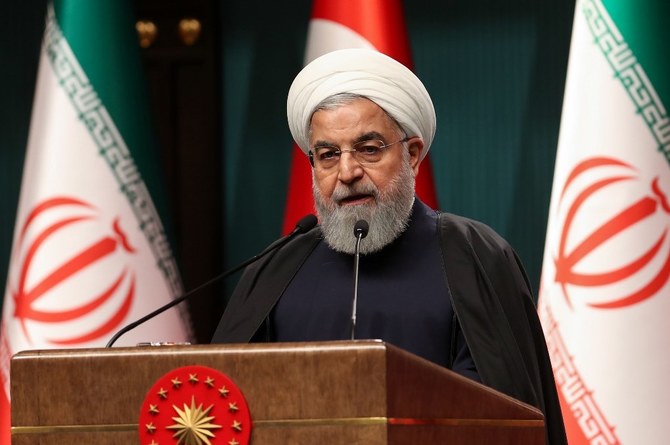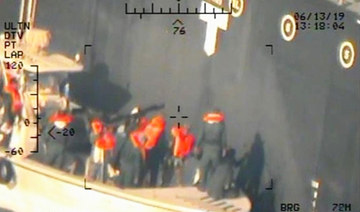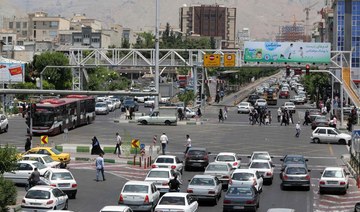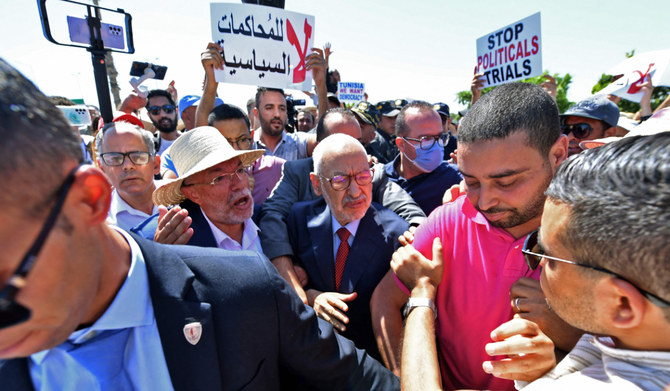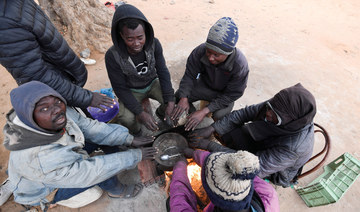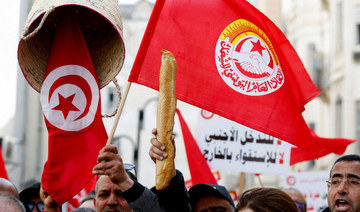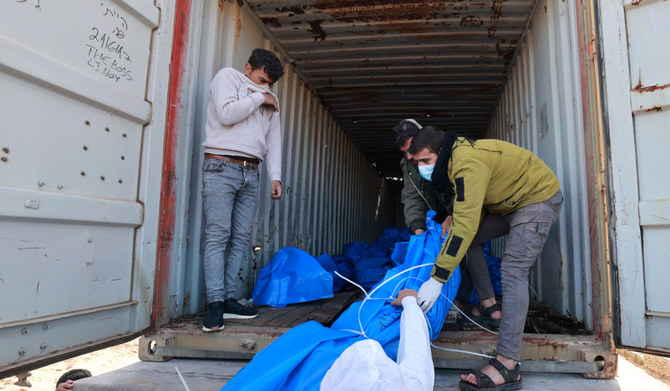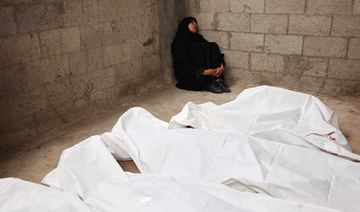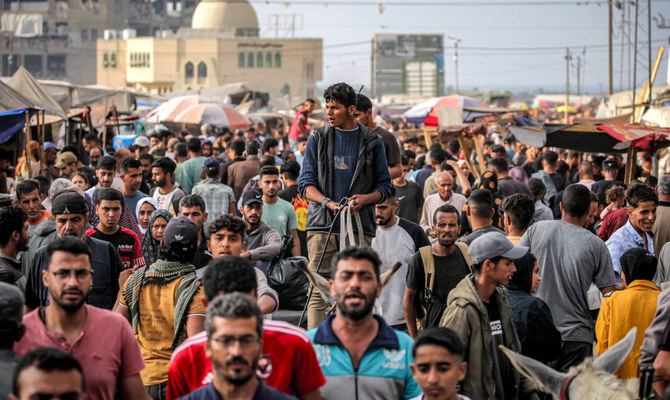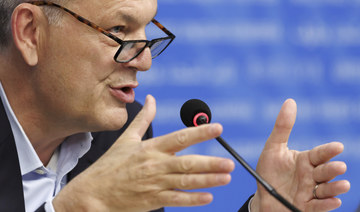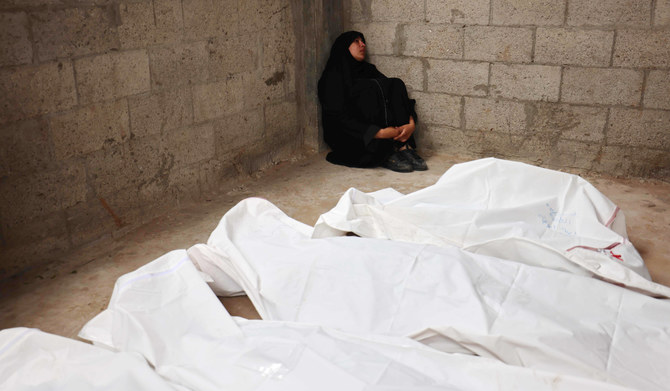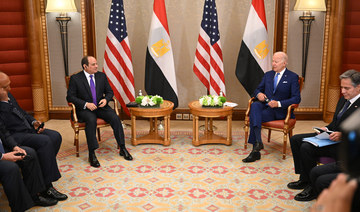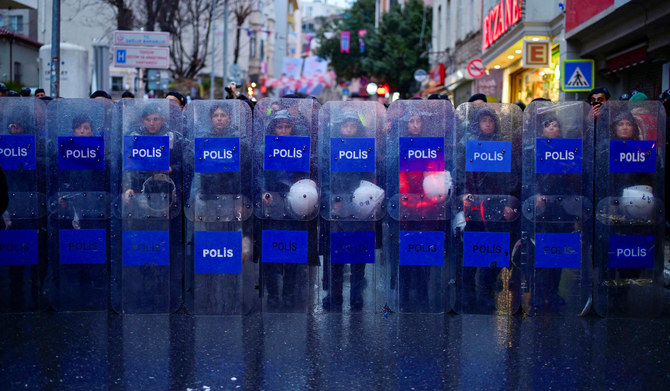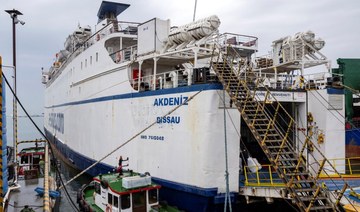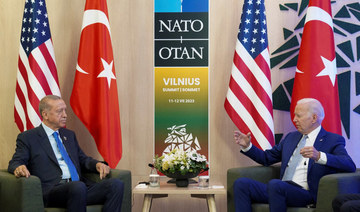JEDDAH: Iran “will not wage war against any nation,” President Hassan Rouhani said on Tuesday — hours after two drones launched by Iran-backed Houthi militias in Yemen targeted civilians in southern Saudi Arabia.
Rouhani's statement sounded a note of restraint after the United States announced more troop deployments to the Middle East.
“Iran will not wage war against any nation,” he said in a speech broadcast live on state TV. “Despite all of the Americans’ efforts in the region and their desire to cut off our ties with all of the world and their desire to keep Iran secluded, they have been unsuccessful.”
But he was also contradicted by the commander of the Islamic Revolutionary Guard Corps (IRGC), Gen. Hossein Salami, who said Iran’s ballistic missile technology had changed the balance of power in the Middle East.
“These missiles can hit, with great precision, carriers in the sea ... they are domestically produced and are difficult to intercept and hit with other missiles,” Salami said.
He said Iran's ballistic missile technology had changed the balance of power in the Middle East.
Opinion
This section contains relevant reference points, placed in (Opinion field)
Before both men spoke, Saudi air defenses intercepted and shot down two Houthi drones packed with explosives. One targeted a civilian area in the southern city of Abha, and the second was shot down in Yemeni air space. There were no casualties, the Saudi-led coalition in Yemen said.
Rouhani’s offer to avoid war was “the height of hypocrisy,” the Saudi political analyst and international relations scholar Dr. Hamdan Al-Shehri told Arab News.
“Rouhani is the biggest hypocrite in the world,” he said. “On the one hand, he is saying that Iran does not seek a conflict with anybody, and on the other it is launching attacks through its militias on oil tankers, oil pipelines, civilian airports and holy cities.
“This is nothing but the height of hypocrisy. Who does he think he is fooling with those words? Why are they enriching uranium? Why are they seeking nuclear bombs? What have they done over the past four decades? They have only caused trouble. They have only fanned sectarian flames in the region.”
The Saudi Cabinet, meeting in Jeddah, also condemned the Houthi attacks on Saudi civilians, and last week’s terrorist attacks on two tankers in the Gulf of Oman, widely blamed on Iran.
Confrontation fears
Fears of a confrontation between Iran and its long-time foe the United States have mounted since Thursday when two oil tankers were attacked near the strategic Strait of Hormuz shipping lane, which Washington blamed on Tehran.
Iran denied involvement in the attacks and said on Monday it would soon breach limits on how much enriched uranium it can stockpile under a 2015 nuclear deal, which had sought to limit its nuclear capabilities.
Exceeding the uranium cap at the heart of the accord would prompt a diplomatic crisis, forcing the other signatories, which include China, Russia and European powers, to confront Iran.
The standoff drew a call for caution from China. Its top diplomat warned that the world should not open a “Pandora’s Box” in the Middle East, as he denounced US pressure on Iran and called on it not to drop out of the landmark nuclear deal.
Russia urged restraint on all sides.
On Monday, Iranian officials made several assertive comments about security, including the secretary of Iran’s Supreme National Security Council, Ali Shamkhani, who said Tehran was responsible for security in the Gulf and urged US forces to leave the region.
Acting US Defense Secretary Patrick Shanahan on Monday announced the deployment of about 1,000 more troops to the Middle East for what he said were defensive purposes, citing concerns about a threat from Iran.
The new US deployment is in addition to a 1,500-troop increase announced last month in response to tanker attacks in May. Washington previously tightened sanctions, ordering all countries and companies to halt imports of Iranian oil or be banished from the global financial system.
'Nuclear blackmail'
Iran’s announcement on Monday that it would soon breach limits on how much enriched uranium it can stockpile under the deal was denounced by a White House National Security Council spokesman as “nuclear blackmail.”
The move further undermines the nuclear pact, but Rouhani said on Monday the collapse of the deal would not be in the interests of the region or the world.
The nuclear deal seeks to head off any pathway to an Iranian nuclear bomb in return for the removal of most international sanctions.
Speaking in Beijing, Chinese State Councilor Wang Yi said the United States should not use “extreme pressure” to resolve issues with Iran.
Wang told reporters China, a close energy partner of Iran, was “of course, very concerned” about the situation in the Gulf and with Iran, and called on all sides to ease tension.
“We call on all sides to remain rational and exercise restraint, and not take any escalatory actions that irritate regional tensions, and not open a Pandora’s box,” Wang said.
“In particular, the US side should alter its extreme pressure methods,” Wang said. “Any unilateral behavior has no basis in international law. Not only will it not resolve the problem, it will only create an even greater crisis.”
Wang also said the Iran nuclear deal was the only feasible way to resolve its nuclear issue, and urged Iran to be prudent.
European Union foreign policy chief Federica Mogherini said the EU would only react to any breach if the International Atomic Energy Agency formally identified one.
The Trump administration says the deal, negotiated by Democratic President Barack Obama, was flawed as it is not permanent, does not address Iran’s missile program and does not punish it for waging proxy wars in other Middle East countries.




